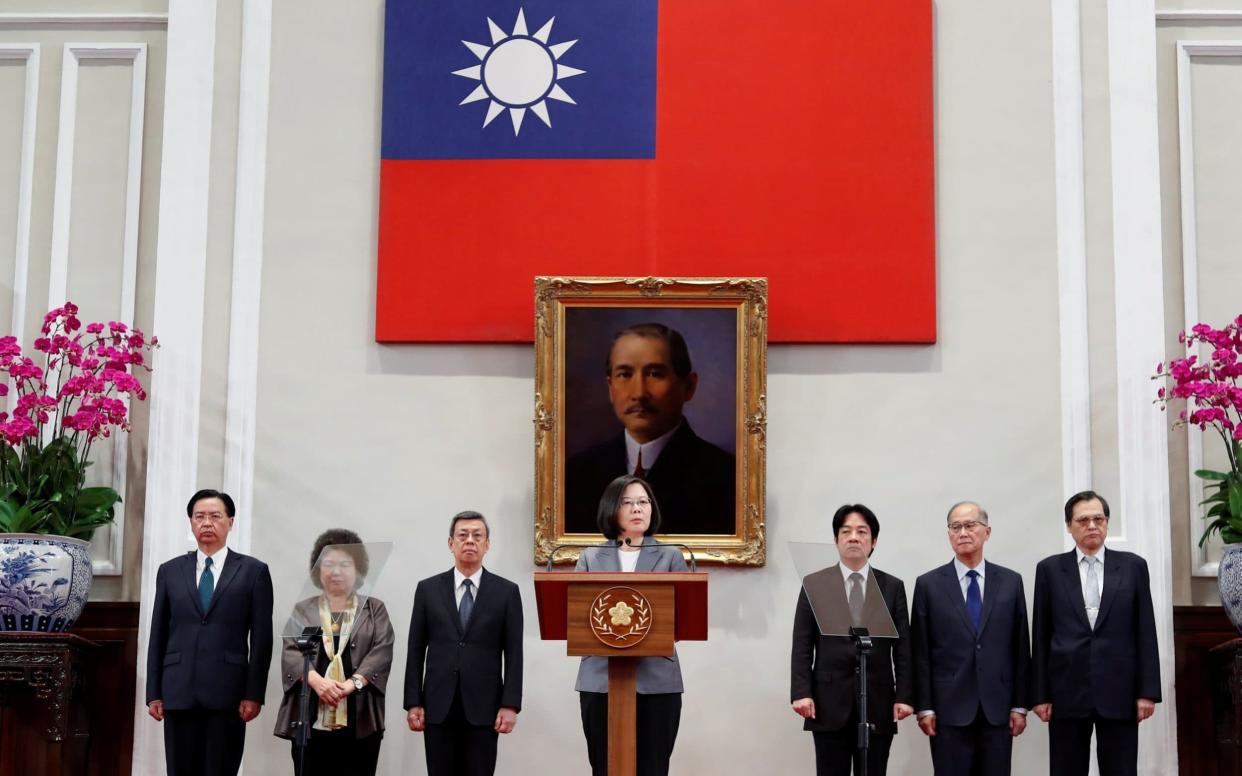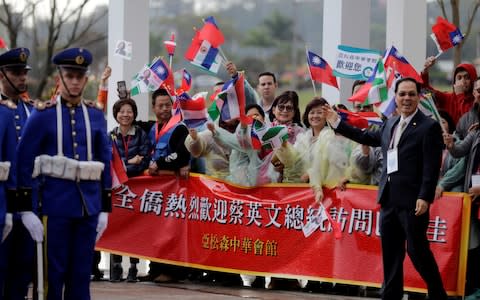El Salvador switches allegiance from Taiwan to China, drawing ire from the US

On the face of it, this week’s break in diplomatic relations between tiny Taiwan, population 23.5 million, and even tinier El Salvador, population 6.3m, did not herald a dramatic shift in global politics. But the Central American nation’s sudden switch in allegiance to China has clearly rattled its US neighbour.
Accusing China of destabilising cross-Strait relations, the White House said: "This is a decision that affects not just El Salvador, but also the economic health and security of the entire Americas region."
It reiterated that the US would reevaluate its ties with the Central American country as a result.
Reacting to the news earlier, high profile US Senators Marco Rubio and Cory Gardner, representing Florida and Colorado respectively, immediately hit out with threats via their Twitter accounts.
“El Salvador has made the wrong decision regarding Taiwan, and it will negatively influence US relations with El Salvador. The US government must stand up to China’s campaign to bully Taiwan with every tool we have,” said Mr Gardner.
Mr Rubio told his 3.6 million followers on Twitter: “I have joined @SenCoryGardner in an amendment to end foreign aid to #ElSalvador after their leftist government decided to abandon #Taiwan in favor of #China. I also spoke to @realdonaldtrump about cutting off their aid just a few minutes ago. "
They faced immediate charges of hypocrisy. El Salvador’s defection has left Taiwan, an island democracy which Beijing claims as its own territory, with only 17 formal diplomatic allies in the world, and the US is not one of them.
I have joined @SenCoryGardner in an amendment to end foreign aid to #ElSalvador after their leftist government decided to abandon #Taiwan in favor of #China. I also spoke to @realdonaldtrump about cutting off their aid just a few minutes ago.
— Marco Rubio (@marcorubio) August 21, 2018
Washington has not officially recognised Taiwan since 1979, when it shifted its recognition to China’s communist government to suit its own strategic and economic interests.
But the senators’ comments join a narrative of growing concern within the US administration that China is acting in a predatory manner on Washington’s doorstep.
President Trump’s National Security Strategy has described Beijing as seeking “to pull [Latin America] into its orbit through state-led investments and loans,” while Rex Tillerson, the former secretary of state, once denounced China as a “new imperial power” in Latin America.
Taiwan’s foreign ministry offered some candid insights into its own rift with El Salvador late on Tuesday night, revealing that it had faced repeated demands for funds to develop the La Union commercial port which would have held “tremendous debt risks” for both countries.
Only last month, Jean Manes, the US ambassador to El Salvador, warned that China had intentions to turn the Pacific-facing port into a “military base,” reported the South China Morning Post.
“It’s a strategic matter, and we all need to keep our eyes open to what is happening,” she said.
China has previously sparked suspicions about the motivations behind its port investments after opening its first overseas military base in Djibouti, in the Horn of Africa, last year, and over the possible development of a second in Gwadar Port in Pakistan.

However, analysts including Bonnie Glaser, senior director for Asia at the Centre for Strategic and International Studies in DC, are more sceptical of the view that China is eyeing La Union for its strategic military interests, arguing that Beijing’s motives in Latin America are more commercially driven.
“I don’t think China is looking to turn every port in the world into a Chinese base. It would be strategically stupid in my mind to be building a base in what America has always considered to be its backyard,” Ms Glaser told The Telegraph.
“The notion that China would like the countries in Latin America to have a good relationship with China and be less dependent on the United States, that could certainly be one of China’s objectives,” she said.
“That’s what China has done around the world, certainly closer to home in Southeast Asia. China has used its economic clout to try and pull some countries away from the United States, at least positioning them in a way that they’re more neutral, so that’s certainly possible.”
Speculation is rising as to which of Taiwan’s diplomatic allies Beijing may successfully pick off next in its quest to isolate the island nation on the global stage.
But aside from the psychological impact on its population, Taiwan has tangibly little to worry about by losing its formal allies, several of whom have demanded funds in exchange for their loyalty, while offering little in return.
Taipei already enjoys strong informal relations with more powerful friends including the US and Japan.
As China seeks to undermine the legitimacy and global influence of Taiwan, a democratic ally of the West located in a regional flashpoint, it is perhaps Taipei’s western friends who should be more concerned.
A Pacific island may be next to switch its allegiance from Taiwan to China, which has grand strategic ambitions in the Pacific region.
“People talk about the Solomon Islands,” said Ms Glaser. “That would be seen as very significant not only by the US but also by Australia and New Zealand, who are very worried about China’s growing influence in the region.”

